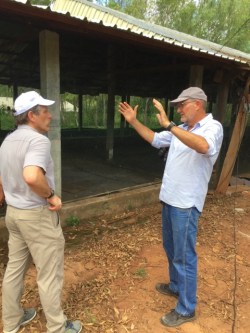
Although strides have been made in the last quarter-century, Mozambique remains one of the most impoverished countries in the world. One University of Saskatchewan-adjacent initiative aims to continue this trend of improvement, starting with 16 families and nearly 50,000 chickens.
Project FranGO, frango fittingly meaning “chicken” in Portuguese, is a self-sustaining program that aims to educate 16 Mozambican families to raise poultry and run their own business while also improving their knowledge on family health and nutrition.
Founded in 2018, Project FranGO is the product of a partnership between the community of Natikiri, Mozambique’s Lúrio University and Novos Horizontes, a Mozambican company that assists the economic goals of small farmers.
Ron Siemens, a U of S faculty member in medicine and pediatrician, is intimately tied to the project as it was in part created from his experiences and observations acquired from working in Mozambique since 2010. Siemens says that Project FranGO is much larger than just a chicken farm.
“This is not a small backyard chicken coop for practice. This is a full-on institution and a business of raising chickens,” Siemens said. “They will learn the business — how to run it honestly, efficiently and effectively.”
Over the course of a year, Project FranGO will train 16 young Mozambican families to run a poultry farm. Based on a seven-week cycle, the families will help raise and care for 45,000 chickens and then sell them to Mozambican markets. The revenue from this is then distributed to an account for each family, the farm itself and the Natikiri community.
After the year-long training is complete, the families will then be given the revenue from the chicken sales so that they can start their own businesses.
Project FranGO has currently raised $100,000 of the $400,000 goal from donors primarily based in Saskatoon and in Prince Edward Island.
Siemens says that they hope to receive the remaining $300,000 through a corporate sponsorship. Beyond administrative costs, which Siemen says are only six per cent of the total, the remainder will go to purchasing bird crates, fences, water and electrical connections, chicken housing units and a storage unit. Siemens says that, after the goal of $400,000 is reached, no further aid dollars will be needed as Project FranGO will sustain itself from the revenue produced through the chicken sales.
For information on Project FranGO and how to donate, head to projectfrango.com.
—
Gabe Fourstar
Photo: Connie Siemens / Supplied
Leave a Reply